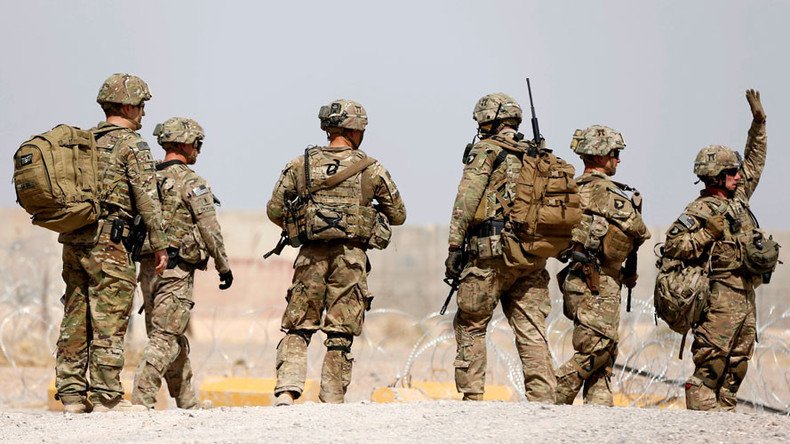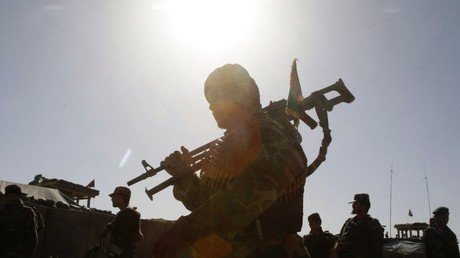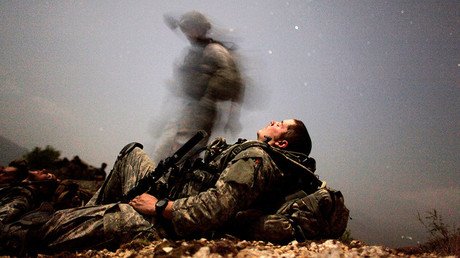McCain slams Trump over Afghanistan, unveils his strategy to win war

Senator John McCain has blasted President Donald Trump over a lack of strategy in America’s 17-year war in Afghanistan, and filed his own plan for the Senate to vote on. It involves more troops, more bombing and an enduring US presence in the country.
“Now, nearly seven months into President Trump’s administration, we’ve had no strategy at all as conditions on the ground have steadily worsened,” McCain, who is the chairman of the Senate’s Armed Services Committee, said in a statement Thursday. “The thousands of Americans putting their lives on the line in Afghanistan deserve better from their commander-in-chief.”
“We must face facts: We are losing in Afghanistan and time is of the essence if we intend to turn the tide,” he said.
McCain has filed his plan to win the war as a proposed amendment to the annual defense bill. The strategy calls for beefing up the number of US troops in Afghanistan, “significantly” increasing the use of US air power there, as well as getting rid of current withdrawal timelines placed on the military, according to a released copy of the legislation.
The Republican senator’s proposed amendment does not specify the number of additional troops to be sent to fight the war which has gone on for 17 years - longer than any other war the US has been involved in.
President Trump himself reportedly lashed out at top US military officials in a July meeting for losing ground in Afghanistan. “We are losing,” he said, according to an NBC report.
The president reportedly considered firing the commander of American troops in Afghanistan, General John Nicholson.
Nicholson had earlier said that a few thousand more troops were needed to gain an advantage over the resurgent Taliban. The Trump administration was weighing the deployment of 3,000-4,000 additional forces, according to lawmakers briefed on the plans.
Trump says US ‘losing’ war in Afghanistan, wants top brass reshuffle – reports https://t.co/PpmWXbAkJf
— RT America (@RT_America) August 4, 2017
When testifying before the Senate Armed Services Committee in June, Secretary of Defense Jim Mattis said the administration would be prepared to brief lawmakers on a new Afghanistan strategy in mid-July. However, the new strategy has yet to come.
The US-backed government in Kabul controls about 60 percent of the country, while the Taliban are gaining ground.
Last week, the militants gained control of a key area in Afghanistan’s north Sari Pul province.
“We requested reinforcement from the central government, unfortunately couldn’t get any support, that is why the forces lost control of Mirzawalang,” Zabi Amani, a spokesman for the provincial governor, told AP.
Earlier this summer, the Taliban raided and seized the district of Jani Khel in Paktia province, south of Kabul. The fall of Jani Khel marked their third victory in just four days.
The Taliban also overran the Kohistan district in the northern Faryab province after storming its government’s headquarters, forcing local security forces to retreat to another base. Just hours after the capture of Kohistan, they seized the Taywara district in western Ghor province.
The US is estimated to have spent over $700 billion on military assistance, reconstruction and economic aid to Afghanistan in the past 17 years.
Around 9,000 American troops are currently deployed in Afghanistan on a mission to train, advise and assist Afghan forces.
A total of 2,350 US soldiers have died in the war, which began in 2001 as a response to Afghanistan’s harboring Al-Qaeda following the 9/11 terrorist attacks. With Al-Qaeda in the country largely defeated, the war has morphed into a fight with local Taliban insurgents.
The Obama administration said a political solution that would involve the Taliban was necessary to end the conflict. It is unclear where the Trump administration stands on the issue.
Casualties confirmed as NATO convoy attacked in #Afghanistanhttps://t.co/lb2P3zxPcppic.twitter.com/Ix9p08TNwk
— RT (@RT_com) August 2, 2017
Afghan civilians have been hit the hardest by the war - some 1,662 were killed in the first half of 2017 alone, according to a mid-year report by UN Assistance Mission in Afghanistan (UNAMA).
Meanwhile, Afghanistan remains the world’s leading producer of opium. The Taliban receive 60 percent of their funding from the opium trade, according to General Nicholson.
“An $8.5 billion U.S. counternarcotics effort failed to prevent Afghan opium production from setting new records,” said the Special Inspector General for Afghanistan Reconstruction (SIGAR) in a report.
In 2016, the illicit production potentially grew a whopping 43 percent in Afghanistan and reached 4,800 tons, according to SIGAR.














